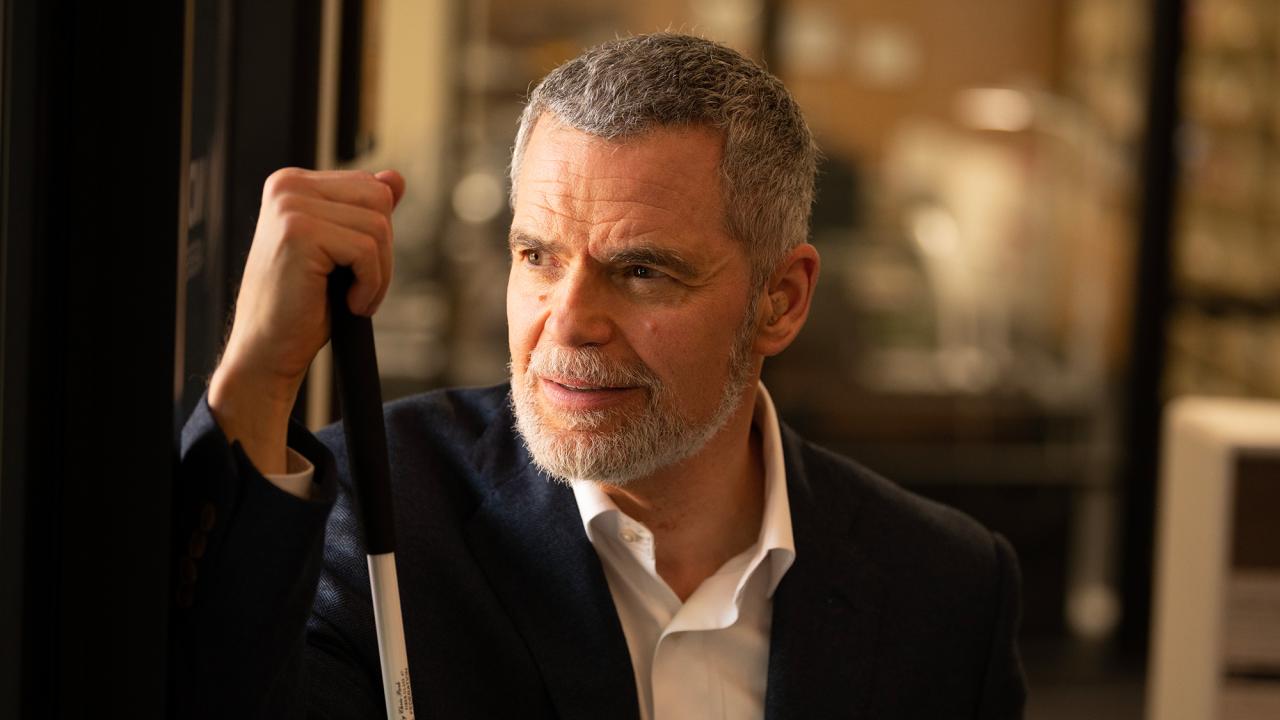Shane Snyder ’89 can relate to the challenges his clients face at the Society for the Blind in Sacramento.
As the director of programs, Snyder helps connect people to resources they need to build independent living skills when they lose their sight. But personally, he also has confronted vision loss due to Usher syndrome, a congenital degenerative condition that affects both eyes and ears.
“I had to learn some new ways to do the things I already knew how to do,” said Snyder, who wears aids to help with hearing.
Snyder grew up in the foothills near Nevada City, and when the time came for college, he landed at UC Davis, although he said he didn’t know what he wanted to study. After changing his major a few times, graduated with a degree in English.
He earned his teaching credential from California State University, Sacramento, and taught middle school, high school and even adult education in Sacramento.
But just as he was reaching his stride as a teacher, he said, his vision loss became much worse, to the point of having a trouble reading the textbooks.
“I had known it was coming, but when it came, I wasn't quite sure what to do with that,” he shared. “For a while, I got very depressed, and I thought, ‘well, that's it. I'll never work again.’ I went through a pretty difficult time.”
After someone suggested he open a case with the California Department of Rehabilitation, he was sent to the Society for the Blind to receive assessments. He trained in adaptive technology, learned to use a cane and studied Braille.
“What I found was that I could still do a lot of things that I thought I couldn't do anymore,” he said.
He also decided to go back to work, starting as a teacher at the Society for the Blind and working his way up.
The Society for the Blind offers a variety of programs aimed at improving life and job skills, through training, mentorship and access to tools to maintain independence for people of all ages. For example, at home, they will provide training for using the kitchen or operating adaptive technologies to assist with a computer or smartphone. They will also come to a workplace to assess needs there in effort to aid worker retention. Support groups are in-person, or by telephone or online.
“We don't believe that blindness or low vision need be a barrier to doing the things we need and want to do,” Snyder said. “It's just a matter of identifying those techniques and tools that are going to work for each individual, equipping them, training them and giving them opportunities to become proficient.”
Snyder has been there about 15 years now.
Outside of work, he said he loves music. He attends concerts frequently and is even reteaching himself to play guitar.
“For years, I didn't touch the guitar; I gave my guitar away,” Snyder said. “Recently, I got ahold of one, and I've been teaching myself how to play non-visually. I'm making some progress. And it's a great sense of fulfillment to be a blind guy trying to find chords on a guitar and to make those chord changes sound nice. And even if it's not all that pretty right now, it's lot of fun to be doing it and to know that I'm figuring out how to do it.”
